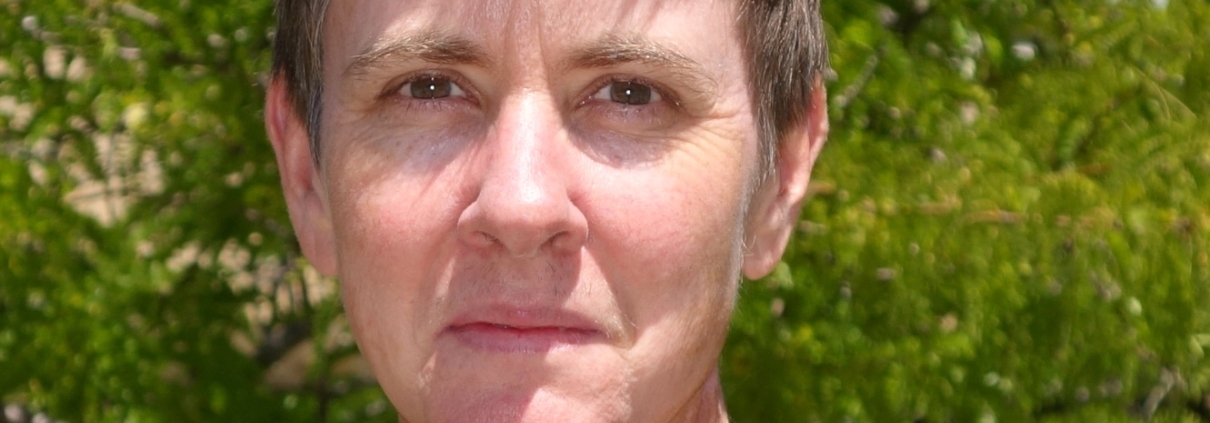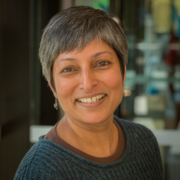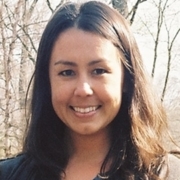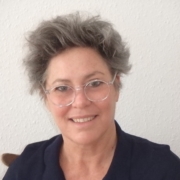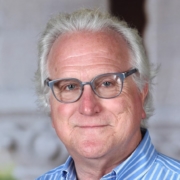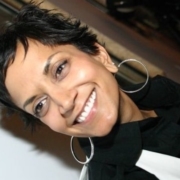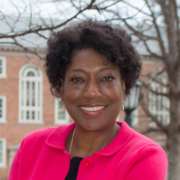Today we look at sexuality education. In some countries, scholars who advocate for a secular worldview have constructed a progressive sexuality education that embraces science at the exclusion of religion.
With me is Mary Lou Rasmussen. In her monograph, Progressive Sexuality Education: The Conceits of Secularism (Routledge, 2015), which was just released in paperback, Mary Lou carefully explores how progressive scholarship and practice might get in the way of meaningful conversations with students, teachers, and peers who think differently about the field of sexuality education.
Mary Lou Rasmussen is a professor at the School of Sociology at The Australian National University. She is co-editor, with Louisa Allen, of the Handbook of Sexuality Education which will be published in October.
Citation: Rasmussen, Mary Lou, interview with Will Brehm, FreshEd, 87, podcast audio, September 18, 2017. https://www.freshedpodcast.com/rasmussen/
Transcript, Translations, Resources:
Will Brehm 2:05
Mary Lou Rasmussen, welcome to FreshEd.
Mary Lou Rasmussen 2:08
Thank you very much for having me on. I think this is a great program and I’m very happy to be part of it. So, thanks for inviting me.
Will Brehm 2:19
Thank you for joining. So, what makes sexuality education progressive?
Mary Lou Rasmussen 2:24
I think that there’s several things that are associated with the idea that a form of sexuality education is understood as progressive. And that might be that it’s underpinned by rigorous scientific research, that the approach has an absence of religion and is based on good science and rationality reason, that it needs to promote sexual autonomy in young people so they have the capacity to act as autonomous sexual subjects, and that it is able to promote tolerance as well and cultural inclusion based on sexual and gender diversity. And sometimes I think that this can mean that sexuality education which has a religious component is not seen as progressive.
Will Brehm 3:24
So, this would obviously make it fraught being used around the world, with religion being so dominant in so many places.
Mary Lou Rasmussen 3:32
Yes, I think that it’s interesting to think about how progressive sexuality education might take root in religious context, given some of the assumptions that underpin it. And I think that there are lots of places that I would classify as religious that do progressive sexuality education. So, I’m not trying to say that’s a binary, but I think sometimes it might get constructed as such.
Will Brehm 3:57
So how does it take root?
Mary Lou Rasmussen 3:59
Well I think that there is a sense that sexuality education should be rigorous. And that kind of arguments made, especially in quite conservative contexts, to argue for the benefits of sexuality education, regardless of whether you’re in a society that might be constituted as more religious or more secular, are often scientific. So, the reason that we need it is to make sure that we reduce the HIV infection rates, for instance. And so that’s a good reason to have sexuality education regardless of the social context. And so how do we best do that? We do that through a rigorous scientific approach. And I think that that argument can have weight in lots of different social contexts.
Will Brehm 4:51
Right, so, science, in a way, becomes the new religion.
Mary Lou Rasmussen 4:54
That’s right. And I think that tolerance around gender diversity – in the sense that we might thinking about gender equity – also has quite a bit of weight in sexuality education provision, and a sense of the empowerment of young women. So, gender diversity I’m talking about there is quite different to maybe thinking about what people might call gender fluidity. There’s a lot of resistance to sexuality education -and that’s true in the Australian context, especially at the moment – that enables us to talk about young people who are gender transitioning, for instance, versus the empowerment of young women through sexual autonomy that is provided by giving them information about how they might manage their fertility.
Will Brehm 5:54
So, I would imagine that when sexuality education is taught in public schools, the issue of religion could become very problematic in countries that’s trying to separate the state from religion.
Mary Lou Rasmussen 6:13
Yes. One of the things that’s been interesting to me in researching the topic is how sexuality education can be married in movements to arguments for a more secular schooling system. So, like, the reason that we need secular schooling is because of sexuality education, because we cannot teach good sexuality education without secularism. And so that’s an interesting political strategy that gets operationalized in regards to sexuality education debates. But that said, I think that there’s some interesting sexuality education that’s happening in religious contexts. And sometimes I think that religious schools can have a more interesting approach to sexuality education, because it’s not only based in scientific rationales, but also explicitly bringing in conversations about morality and ethics, which to my mind are crucial in thinking about how we understand sexuality in the lives of young people and anybody really. Which isn’t to say that I necessarily agree with everything that happens within a religious approach, but I do think that morality and ethics need to be a part of conversations in sexuality education. And to pretend that they’re not as quite difficult.
Will Brehm 7:46
In your research, did you come across a quintessential example of something that’s taught in sexuality education from a religious perspective that includes these moralities and ethics that you’re talking about that is absent when you looked at some of the progressive sexuality education?
Mary Lou Rasmussen 8:04
There’s a sexuality education curriculum that was developed in the United States. And the United States is often seen as a place where sexuality education is maybe not held up as having a great tradition because it’s been very controversial. But I think that there’s also some interesting things happening in the US because sexuality education provision is very diverse, because, as I’m sure you know, Will, there’s a lot of different systems in the US delivering sexuality education and it isn’t uniform at all – how provision is imagined in that space. And the person who was the leader of SIECUS, which is the biggest secular lobby group for sexuality education provision in the US, is a Reverend. And she left SIECUS and developed a curriculum that was for faith-based schools. And I think that her curriculum is a really interesting example of how you might think about the incorporation of sexuality education in a way that takes account of people’s beliefs and values. Another person who I think has done some quite interesting work in this area is Sharon Lamb, who’s really thought a lot about the place of morality and ethics in sexuality education. And she’s developed curriculum in that space as well. And she’s also US based. And so, they’re two examples that I can think of that are trying to explicitly bring values in. And another person, in the UK context, who has written about this in some interesting ways is Michael Reiss from the Institute of Education in London, and he’s written a book about values and sexuality education.
Will Brehm 10:07
In your book, you basically do a comparison of different countries. So, I want to hear a little bit about each country to see the relationship between secularism and sexuality education as it plays out in these different contexts. So maybe we’ll start in the country where you’re currently living – in Australia.
Mary Lou Rasmussen 10:32
It’s interesting to think about how sexuality education is imagined in these different contexts. Victoria -which is where I’m from in Australia, but no longer where I live now – is held up as one of the places that has a cutting-edge sexuality program internationally. And certainly, in Australia, it’s also held up as having a very progressive sexuality education program. And in Victoria, there’s been curriculum that have been developed that take people through sexuality education and has like ways of imagining it from kindergarten through to year 12. So, there’s a very comprehensive curriculum. That being said, it often isn’t implemented in schools, but it exists on paper. And that’s a really important distinction to make as well, because often sexuality education will happen in writing, but not in practice, because it’s one of those things that very quickly gets pushed out of curriculum because it is not going to get you a good grade necessarily. But getting back to the Australian context, and Victoria. So, it’s examining assumptions and community attitudes and stereotypes about young people and sexuality, which I think is quite an important component. It’s also identifying support strategies for young people experiencing difficulties in relationships or with their sexuality, which again, I think is something that marks Victoria Out as being quite a progressive program. And it’s also asked schools to review policies and practices related to sexual harassment, homophobia and discrimination. Again, that’s something which distinguishes the Victorian context maybe from other Australian states and also internationally. So that’s the Victorian context. The Australian context more broadly is less explicit. So, in the Australian curriculum, there’s an impulse or there’s a critical examination of sociocultural and personal factors which influence sexuality, gender identity, sexual attitudes and behavior. But the explicit mentioning of gay and lesbian, bisexual, transgender, intersex relationships is much more muted in the national curriculum than it is in the Victorian curriculum with its more specific resources. And respectful relationships is a large feature of the national curriculum, which is really trying to teach about sex and consent, which is another major push in sexuality education that’s going on within Australia and internationally. I think an important initiative, but also one that tends to put a lot of weight on the young people to be responsible and respectful rather than thinking about how social context might be implicated in the production of unequal sexual relationships.
Will Brehm 13:50
And in the Australian context, do belief and faith and religious values, do they appear in some of the curricula?
Mary Lou Rasmussen 14:02
Not at all. Not in the curriculum documents as they’re used in public schools, but they can be adapted for use in religious schools and have a religious component in those schools. And interestingly in Australia, there’s Edmund Rice Catholic schools, which are 50 very “progressive” (I’m using that word in quotes) Catholic schools in the Australian context. And they have adopted a program called the Safe Schools program for use in Catholic schools. And that was an incredibly controversial program that received a lot of critique from conservative governments around Australia and federally and was defunded. But Catholic schools have taken the program up. Not all of them, just this particular group of Catholic schools which were very elite Catholic schools and also known to be very progressive. So, I think that that just shows that how the lines aren’t really clear about how these things get taken up.
Will Brehm 15:13
Right. So, some public schools may take up more faith, religious, value aspects of sexuality education, and some religious schools may take up more progressive education as well. So, it’s a mixed bag; it’s a much more gray area than a clear line, like you said.
Mary Lou Rasmussen 15:33
I haven’t actually seen any public schools adopting religious issues at all. But I have seen Catholic schools really thinking about how they might become more expansive, which is interesting. I think that state schools might actually benefit from having some conversations about the relationship between religion and sexuality, but I haven’t seen that operationalized in public schools.
Will Brehm 16:01
So why is it that some of these, as you said, elite Catholic schools are taking up some of this progressive sexuality curricula?
Mary Lou Rasmussen 16:11
I think that maybe some of it comes from advocacy among their own students. I think a lot of the students that are attending these schools are demanding that they become more inclusive. I’ve seen some recent research about young people saying that it’s really not okay if Catholic schools are not reaching out to students who might identify as gay or lesbian or trans or bisexual. And the students are saying, “It’s not good enough to say that we’ll love the sinner and hate the sin. We need more from you.” And I imagine that the students at the more elite schools are very articulate and very good at trying to rally for these sorts of more expansive curricula. And I think that there’s probably also teachers at many of these schools that would like that. And let’s also remember that there’s probably gay, lesbian, bisexual, and trans teachers at these schools as well. Even though the letter of the law says I shouldn’t be there according to the Catholic tradition, I think that definitely they are teaching within Catholic systems.
Will Brehm 17:27
I think it’s very interesting that there is this curriculum that is developed for public schools, that’s progressive, but then it doesn’t get taken up in those public schools. You said many of them just sit on the shelf; they’re written but not implemented. But then there’s a group of Catholic schools that is taking parts of that curriculum and implementing it.
Mary Lou Rasmussen 17:49
Yes, it is. And I think that also, there’s something about being an elite school that allows more room for that sort of expansion. Whereas a public school is really more vulnerable, often, in terms of its cultural capital. If you look at the campaign for marriage equality at the moment that’s happening in the Australian context, one of the schools that’s been highly targeted as part of that campaign is a public school in the urban fringe in Victoria. And they’ve become one of the schools that’s at the center of the political firestorm in the marriage equality debate because of a very articulate parent that is making arguments about what happened to her son in terms of education at that school associated with the Safe Schools program I discussed earlier. And while the school completely disputes the parent’s account, I think that in the optics of the debate that that school is incredibly vulnerable because of its position within the education system more broadly.
Will Brehm 19:07
So, let’s take a comparative case to Australia. You also looked at Ireland, which obviously has a very strong religious component to the country, to the culture. So, what goes on with the relationship between secularism and sexuality education in Ireland?
Mary Lou Rasmussen 19:27
One of the reasons that I wanted to look at Ireland is because something like 90% of schools in Ireland are within the Catholic system. So, there’s a huge amount of students that are attending schools that are nominally part of the Catholic system. But there’s a huge pressure – especially after Ireland voted for marriage equality – for schooling to become more inclusive. And I think that there is a sense that, because the Irish context is so dominated by Catholicism, that naturally means that sexuality education provision there is going to be much more conservative than a state that has a more secular education system like Australia or parts of Canada, for instance. So, I was really interested in thinking about, “Well if you look at the curriculum side by side, is what’s happening in the Irish context really quite distinct from what’s happening somewhere that might seem more secular like the Australian context?” And when I lined the curriculum up, again, this is just looking at the curriculum, not how it’s enacted in schools; I didn’t have the resources to do that as part of the writing of the book. But there’s actually a lot of overlap in the provision of curriculum in the Irish system and the Australian system at the national level. So, for instance, in the Irish system, the provision of – it’s called relationships and sexuality education in Ireland. And part of that is demonstrating how to relate respectfully to others of a different sexual orientation. That’s specified as part of the Irish curriculum and clarify understanding of and comfort with different sexual orientations is specified as part of their curriculum. So, in some ways, you might argue that if we’re using particular barometers of what it means to be progressive, which I understand, obviously, quite problematic. The Irish system might be constituted as quite progressive in a place that’s dominated by Catholicism in terms of education provision.
Will Brehm 21:46
Very interesting to see how that the religion and the progressive education can blend together.
Mary Lou Rasmussen 21:52
That’s not really a surprise. One of my aims in writing the book was really to show how those lines so often get blurred. And also, how our reading of a system can often be based on our expectations of what will happen because a state is Catholic as opposed to what’s actually happening in the curriculum itself. So, there’s presumptions about Catholic systems versus state-based systems, and what the content will be. And while often you can make generalizations, there’s also lots of exceptions. And it’s interesting to look at those exceptions and to figure that how they might guide us in what’s possible in terms of thinking about different forms of provision in sexuality education.
Will Brehm 22:41
I want to turn to some of the students because it seems that the curriculum is one thing, but what’s interesting to me is that in the Australian case, you were saying that some of the students in these elite Catholic schools were maybe the drivers to incorporate progressive sexuality education curricula inside this Catholic school. So how have students responded in these different contexts that you’ve looked at?
Mary Lou Rasmussen 23:11
I did research in public schools in Australia a few years ago now. I interviewed students who were receiving sexuality education in years 9 and 10. And I interviewed students who were at a school that was in a very progressive part of Melbourne quite deliberately. And these students were … it just happened to turn out that they were the “gifted and talented” group at the school where I went. So, they were incredibly articulate students who often had parents who were academics or involved … they might be doctors. One of them was actually a sexual health provider. So, it was interesting talking to this young group of people about what they thought should happen in sexuality education. And these young people that I talked to, at least in Melbourne, were quite adamant with me that sexuality education should not include any morals; it should be secular. So, you shouldn’t be confusing the students by talking about morality and ethics as part of sexuality education. It needed to be scientific in its provision. You could discuss issues to do with morals and ethics in English, but not in sexuality education. That really just needed to be informed by science. So, I thought that was interesting in the sense that that idea of secular provision was really at the forefront of the minds of these young people in what good sexuality education looked like, and where they got that understanding from is interesting as a question to me. It suggests that the idea that good sexuality education provision is secular is something that is a part of the fabric of a lot of parts of Australian society. And as Australian society becomes increasingly non-religious; we’ve got a growing percentage of young people especially who identify as what sociologists in religion call “nones”, which is people who identify as having no religion, and how that’s influencing what people’s expectations about sexuality education provision might be.
Will Brehm 25:51
Where do some of these Australian youth get these ideas of secularism as being so – well, I don’t know how to say it – so guiding in their thinking?
Mary Lou Rasmussen 26:04
For the young people that I spoke to – like as I said, they’re part of a group of students at the school who are classified as gifted and talented, so they’re in a stream of elite students within a school that’s already quite elite. And I think that the curriculum sets up a structure to some extent where students who are good at science are elite students. So, there are measures in the curriculum, and in what’s rewarded in terms of the hierarchy of subjects about what constitutes rigorous knowledge. So, I think that that is part of where this might come from. But I often see arguments both in the popular media and insights like The Conversation, which is an online resource that tries to disseminate academic findings to a wide audience. Assumptions about secularism and its value are often coded or explicit in those sorts of arenas. And so, there’s an assumption that Australia, for instance, is a secular society and has a proud secular tradition. And I think that once you’ve scratched the surface of what secularism is, you get a more nuanced understanding of how secularism can easily become a coded way of thinking that can be very exclusionary, and can, I think, fail to reflect the diversity internationally and also within the Australian context around different sets of perspectives around especially issues like gender and sexuality.
Will Brehm 27:59
So, in trying to be tolerant and culturally inclusive, it actually can be exclusionary?
Mary Lou Rasmussen 28:09
I think so. I think that it can be hard to work out how we can have conversations about issues like gender and sexual diversity, or even something like gender equity, in a way that says, “Well, let’s think about the place of belief and the place of tradition in trying to understand who is in the classroom, and how I might incorporate them and understand them as part of my understanding of what sexuality education is and how its lived. My concern is that young people who are new immigrants to Australia, or who are quite religious themselves or who come from religious contexts, might have a sense that they don’t really need to engage in sexuality education at school because it’s just really irrelevant to them; it isn’t reflecting anything about their lives. And I think that we need to have sexuality education provision that isn’t just preaching to the converted but trying to have a sense of a wider church. One of the things that I love about the Safe Schools program and the people that have designed it is that they were absolutely adamant that they would go into religious schools and engage with those schools around provision of the program, and they had a lot of support. Well maybe a lot is overstating it, but they certainly had support from religious schools in the provision of the Safe Schools program. And I think that’s the sort of attitude that we need to be adopting.
Will Brehm 30:07
Right. Being welcoming to different faith and beliefs and religious values and how they can intersect with sexuality education.
Mary Lou Rasmussen 30:15
Yes. Which means that there has to be forms of accommodation on both sides and a recognition that there probably isn’t one universal sexuality education system that’s going to suit everybody in the Australian context. But also that if we say, “It’s my way or the highway”, then you don’t necessarily get that far in terms of how you might incorporate different sorts of experiences.
Will Brehm 30:44
Well, Mary Lou Rasmussen, thank you so much for joining FreshEd. It was a pleasure to have you on.
Mary Lou Rasmussen 30:49
Thank you very much for having me. It was good to be able to talk about the book and share the insights with a wider audience, I hope.
The promises and perils of progressive sexuality education

